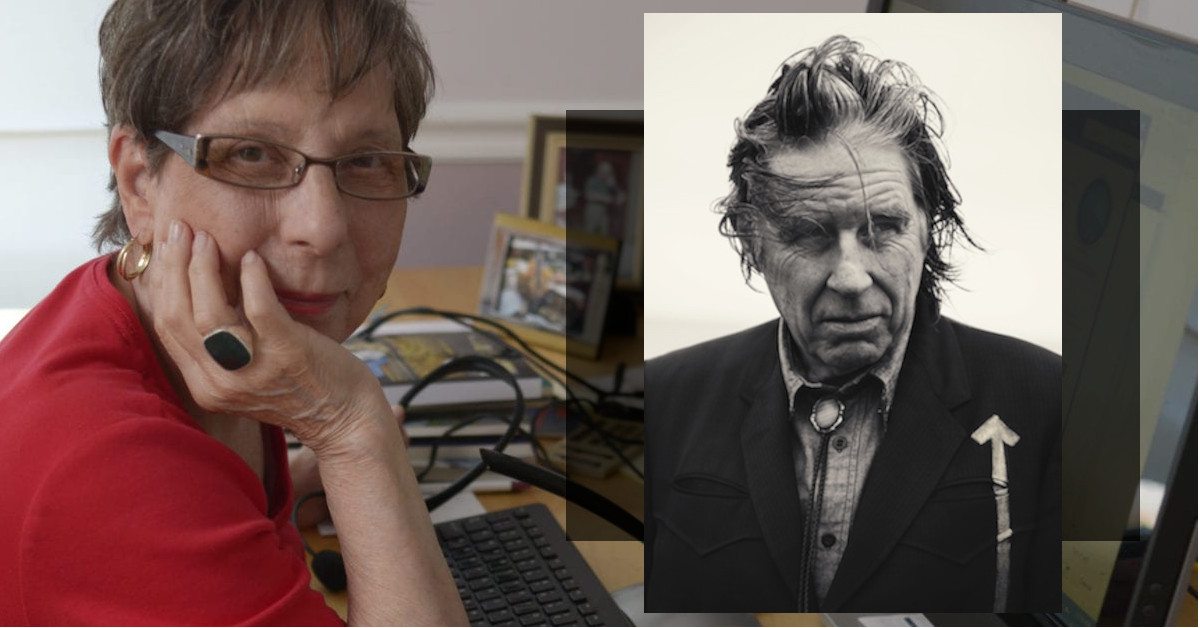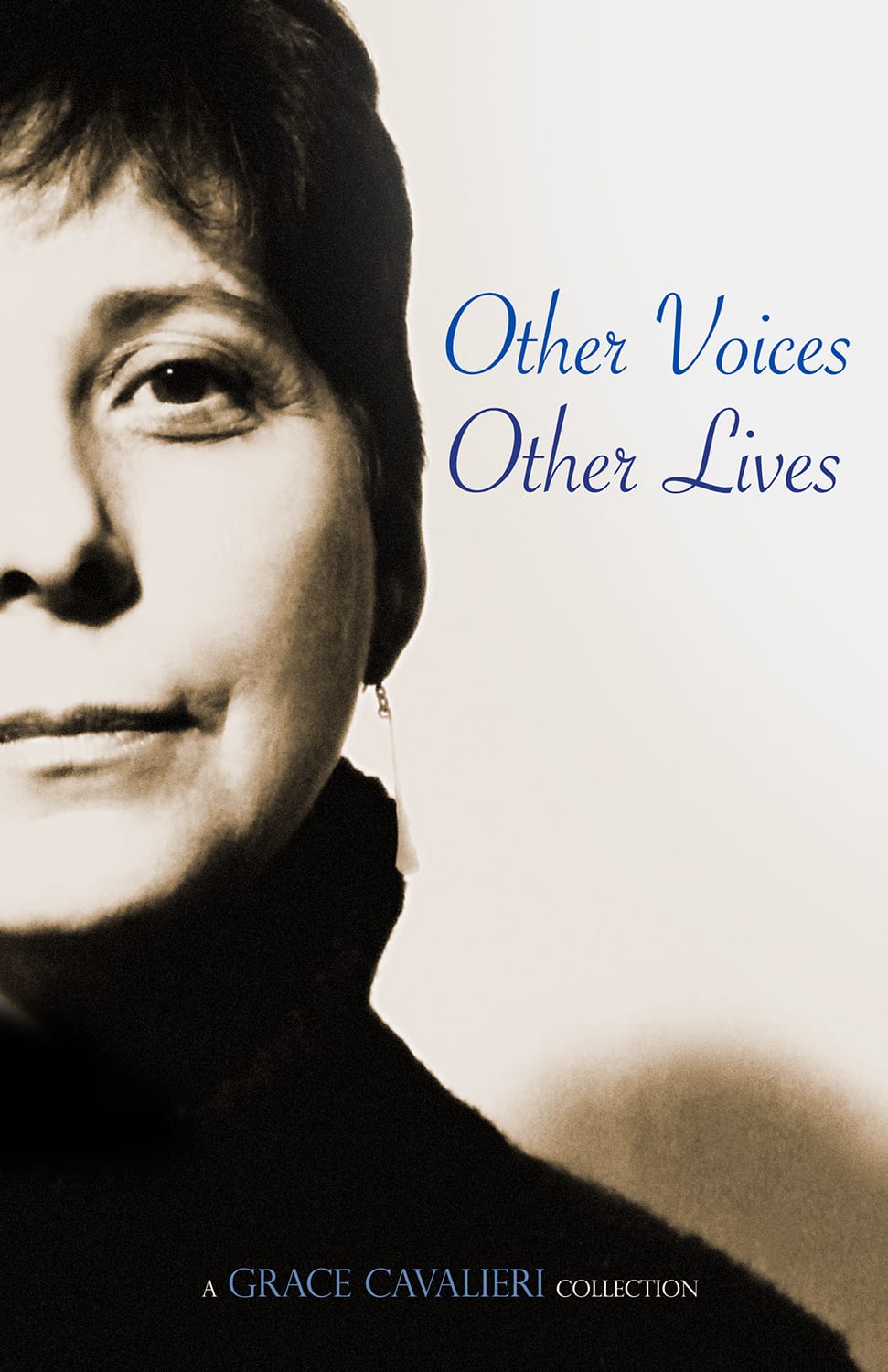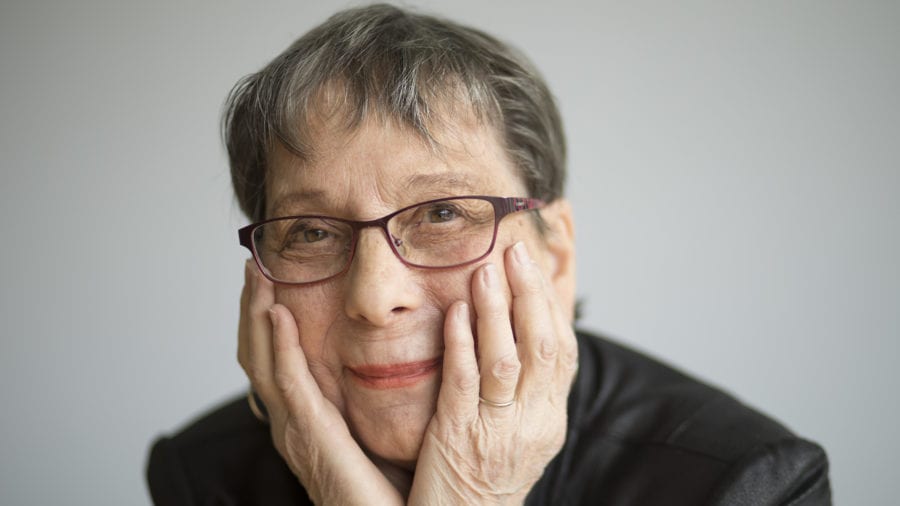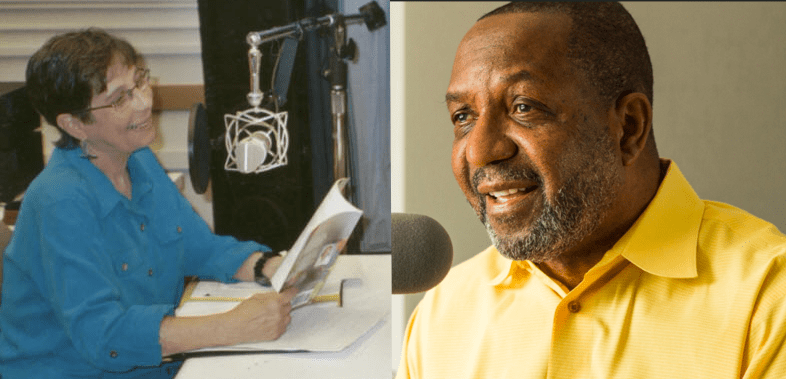John Doe of Band X Recalls his Time Studying Under Grace Cavalieri at Antioch
The punk-rocker, like so many others, discovered poetry through Grace Cavalieri. She offers some sound advice for aspiring readers.

John Doe, California punk-rocker of the band X shares a common trait with so many Maryland and D.C. poets: he discovered poetry through Grace Cavalieri. While Grace has introduced countless readers to poetry through her original work, it was in Grace's class at Antioch that Doe discovered the "current" poets whose vernacular was similar to his own. In an article from The Tampa Bay Times, Doe describes her method:
What she did was tell me, "Don't read anything that was written earlier than 1945 so you can be inspired by current poets that were alive and had a similar kind of vernacular, a similar way of talking in life." So when you do this, you don't have the hurdles, perhaps, of Shakespeare or Tennyson.
In his new book Under the Big Black Sun: A Personal History of L.A. Punk, Doe goes into more detail about his time studying under Grace and her influence on him and his music.
Grace's own poetic history can be found in the selected work Other Voices, Other Lives. OVOL features poetry both new and old, as well as selections from a number of Grace's plays, and even transcripts of her interviews with poets like Rita Dove. More about OVOL here.
Other Voices, Other Lives: A Grace Cavalieri Collection is a selection of poems, plays, and interviews drawn from over forty years of work by one of America’s most beloved and influential women of letters. The author of 23 books of poetry and 26 produced plays, and the founder of the legendary radio interview program, The Poet and the Poem, Grace Cavalieri has won multiple national awards for her writing and her service to literature. She currently resides in Annapolis, Maryland.
Featured Audio: Rose Solari reads “The Beginning, 1939”
In “The Beginning, 1939” Rose Solari’s mastery of recitation is put to the music of her capricious mother and the frantic hopes of her father who wishes to leave “no long, tight pauses for her to fill.” I’ve written before about Rose’s use of swing and rhythmic motifs in her work, elements which are alive in this poem, but what is really mesmerizing to me about “1939” is the musical image toward the end which harbors no pretense of cramming lieder into language, but instead focuses on the very physical act of her mother playing the piano:
Mikaela Lefrak Examines the Life of Maryland Poet Laureate, Grace Cavalieri
The beloved Grace Cavalieri “contains multitudes” according to Mikaela Lefrak in her newest article from WAMU taking a look at the life and career of the 10th Poet Laureate. And Ms. Lefrak treats her subject with the due respect of a life which cannot be covered succinctly in 500 words. She delivers a reverent tourists’ view of Grace Cavalieri’s life, hitting the big things: her poetry and work ethic, the passing of her husband, Kenneth Flynn, her conversion to Buddhism, and finally her new tenure as Poet Laureate.
Listen to Grace Cavalieri on the Kojo Nnamdi Show
Grace Cavalieri’s recent stop at NPR’s The Kojo Nnamdi show is now streamable. Over a substantive 22 minutes, listen to Grace talk about poetry, inspiration, and her plans as the 10th Maryland Poet Laureate.


